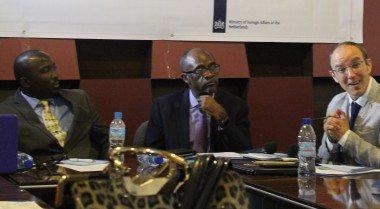
Palestine UN Membership Application: What does it mean for Palestinians?
As of January, Palestine expressed renewed interest to apply for full UN membership for the state of Palestine in order to demand international protection for the people of Palestine under the Israeli occupation.
This application can be important for the people of Palestine in so far as it can be a further step towards a sovereign independent state for Palestinians; which would hopefully encourage more recognition by more states. Most importantly, if UN membership as a full state with fully determined borders could be a means to guarantee international protection against the forces of the Israeli army, that could be a transformation that would force the Israelis to leave the areas that are within the Palestinian state borders. As a full member state of the UN, if Palestine is attacked it can ask for UN protection. Becoming a UN member state could therefore perhaps shift the discourse from concern and focus solely on the security of Israel to focus also on the security of Palestinians.
However this is a very big if, given the history of the absence of the application of international law in the case of Palestine and the Palestinians. In so far as what would probably change, it is not so straightforward and not so clear whether, if the full UN membership would make a difference at all, that difference would be a positive one.
One other possible positive difference (apart from the highly unlikely intervention by force of the international community) might be the increased role of the UN in a negotiated peace process that could tilt the balance of power and allow Palestinians to achieve a form for their state that is not a purely Israeli version. In the case of failure of a US led negotiating initiative, such an enhanced UN role might still hold out the chance of a "soft-power" intervention leading to a fairer and also more sustainable solution.
But regarding international protection, for instance, how would this be possible without borders? And if there have to be borders, then that already begs many questions regarding precisely where these would be, the problem of the contiguity of Gaza, ensuring that Jerusalem is the capital, and the problem of returning refugees.
What is more, by now the two-state solution (which the UN membership would favour) is increasingly being declared obsolete or dead, due to the facts on the ground, and other solutions such as one-state or confederation are coming to the forefront as potential solutions. In this situation it would seem to be important to keep options open as much as possible, rather than risk closing them.
"By now the two-state solution is increasingly being declared obsolete or dead, due to the facts on the ground, and other solutions such as one-state or confederation are coming to the forefront as potential solutions."
It is also not clear at all if this UN Membership Application for Palestine is important for the people in Palestine. Many of the benefits of UN Membership, such as access to international UN institutions like the ICC, or the ability to participate in the work of the General Assembly came with the Permanent Observer Non-member status acquired in November 2012.
On the other hand, recognition at the UN level, while a major step towards joining the international community, and an encouragement to further recognition by more members of the UN, need not oblige Israel to cede any of its current control over the lives of Palestinians in the occupied Palestinian territories, nor would it oblige them to lift the siege on Gaza, any more than they are obliged to at the moment, for clear humanitarian reasons.
Therefore, while it might be seen to be an advantage to have a state that would therefore be "equal" to other states, it is not clear whether such an ostensible equality would be for the benefit of the Palestinians, who unless the facts change on the ground, will remain under Israeli control for almost all aspects of their lives, in a very asymmetrical power situation.
Regarding how Palestinians feel about this, there is a lack of hope for any change for the better, and a lack of trust in international (or even national) institutions coupled with a still fomenting anger against president Trump's declaration about Jerusalem. The general feeling is that it won't make much difference either way – whether the full membership is agreed or not – one young Palestinian lawyer summed it up as: "It's just Abbas clinging to the idea that he can achieve something."
Written by Lucy Nusseibeh
-Founder and Director of Middle East Nonviolence and Democracy (MEND)

